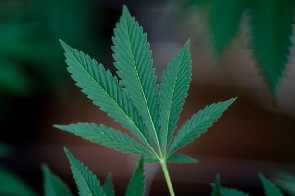Opinions of Sunday, 16 July 2023
Columnist: Akosua Sarpeimaa Tibu, Esq.
The law on cannabis cultivation reactivated
Introduction
Sometime in 2020, the Parliament of Ghana repealed the Narcotic Drugs (Control, Enforcement and Sanctions) Act, of 1990 (PNDCL 236) when it passed the Narcotics Control Commission Act, of 2020 (Act 1019). One significant element of the new Act is the provision under section 43 that allows the controlled cultivation of cannabis for industrial and medicinal purposes.
Two years later, in 2022, the Supreme Court in a majority decision in the case of Ezuame Mannan vs. the Attorney General and Speaker of Parliament, struck out the above provision that allowed a controlled cultivation of cannabis for industrial and medicinal purposes as having been passed without due process. Parliament has amended the law one year down the line by re-enacting the provision that was struck out.
Licensed cultivation of cannabis
Section 43 of the Narcotics Control Commission Act, 2020 (Act 1019) titled “Special provision relating to cannabis” states as follows;
(1) Despite subsections 39 to 42, the minister, on the recommendation of the Commission, may grant a licence for the cultivation of cannabis which has not more than 0.3% THC content on a dry weight basis for industrial purposes for obtaining fibre or seed or for medicinal purposes.
(2) For the avoidance of doubt, a licence granted under subsection (1) shall not be for the cultivation of cannabis for recreational use.
As can be seen from the above, the provision empowered the Minister to grant a license for limited cultivation of cannabis either to obtain fibre or seed or for medicinal purposes.
Supreme Court strikes out of provision on the cultivation of cannabis
On the 27th day of July 2022, however, the Supreme Court in the case of Ezuame Mannan vs The Attorney-General & The Speaker of Parliament Suit No. J1/11/2021 (Ezuame case), struck out the said section 43 of Act 1019 as unconstitutional holding that the said provision when it was introduced into Parliament was not accompanied by an explanatory memorandum as required under Article 106(2) of the 1992 Constitution of Ghana. The majority speaking through Kulendi JSC held thus;
“…the lack of debate on section 43 of Act 1019 amounts to not only a direct violation of the letter of Article 106 of the constitution but also a violation of the spirit of the law. There was conspicuously, no debate over such a critical shift in policy by Parliament. Needless to say, this conduct and mode of law-making defeats transparency and accountability enjoined by the Constitution. The dictates of constitutional fidelity, in our view, require that such a shift in policy which is intended to result in a novel exception, ought to be debated to satisfy the purpose of Article 106. Failing this the process adopted by Parliament offends the letter and the spirit of the Constitution”
Article 106(2) of the Constitution provides that;
No bill, other than such a bill as referred to in paragraph (a) of article 108 of this constitution shall be introduced in Parliament unless –
(a) It is accompanied by an explanatory memorandum setting out in detail the policy and principles of the bill, the defects of the existing law, the remedies proposed to deal with those defects and the necessity for its introduction; and
(b) It has been published in the Gazette at least fourteen days before the date of its introduction in Parliament.
It was the case of the Plaintiff in the above-mentioned Ezuame Case that Parliament violated the letter of Article 106 of the Constitution, the supreme law of the land when it introduced the said section 43 of Act 1019 into the bill at the last point without going through the required process as specified under Article 106(2) of the Constitution. The Supreme Court agreed with the Plaintiff’s argument and struck out section 43 as unconstitutional.
Essentially, therefore, all that the Supreme Court said was that Parliament failed to be transparent in passing section 43 of Act 1019 and the lack of transparency is completely poles apart from the express requirement of Article 106.
Clearly, the Supreme Court’s decision did not attack the substance of section 43 of Act 1019. It merely attacked the failure to observe due process prior to the provision being passed.
In its quest to obtain the benefits of the said provision, Parliament introduced a Narcotics Control Commission (Amendment) Bill, 2023 seeking to amend Act 1019 and re-enact the provision that was struck out in the Ezuame Case. The bill was introduced under a certificate of urgency under Article 106(13) of the 1992 Constitution.
Article 106(13) provides thus;
“Where it is determined by a committee of Parliament appointed for the purpose that a particular bill is of an urgent nature, the provisions of the preceding clauses of this article shall not apply and accordingly, the President shall give his assent to the bill on its presentation for assent.”
Thus, Parliament on the 12th day of July 2023 passed the Narcotics Control Commission (Amendment) Bill under a certificate of urgency and the same is currently awaiting the President’s Assent.
Substance of the amendment
This provision in section 43 as amended, means that upon the recommendation of the Commission, the Minister, if satisfied may grant a licence for the cultivation of cannabis containing not more than 0.3% THC on a dry weight basis for industrial purposes for obtaining fibre and medicinal purposes only. Therefore, where a licence is granted and the Minister finds upon investigation that cannabis cultivated under the license exceeds 0.3% THC on a dry weight basis, the license could be revoked and prosecution instituted against the persons in breach of the terms of the license granted under the statute. This provision is quite clear and not clad with any ambiguities whatsoever.
Consequently, the public is advised that the said provision or its amendment is not to be interpreted as that licence may be granted for the wholesale cultivation of marijuana or cannabis in Ghana, or that license has been granted for the general use of cannabis in Ghana. The act only allows for the cultivation of cannabis that has THC content less and not more than 0.3% on a dry weight basis.













